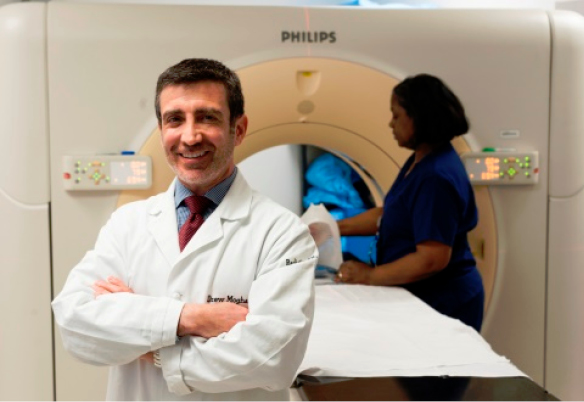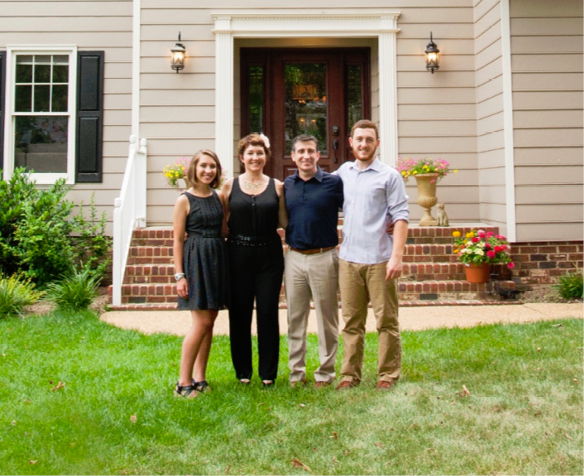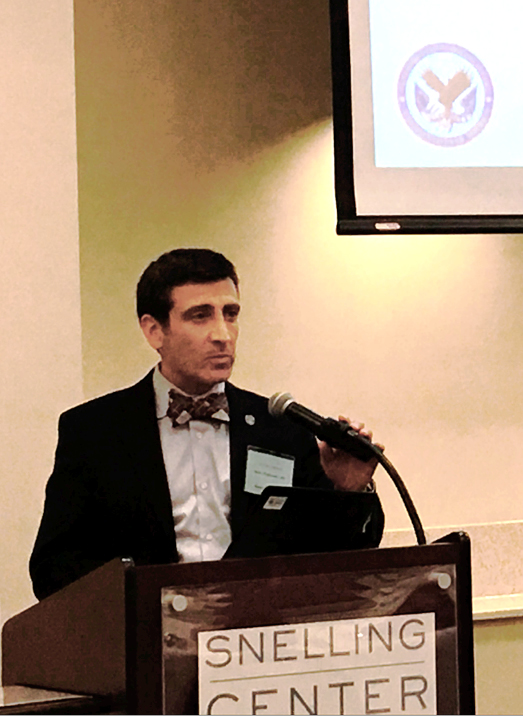Dr. Drew Moghanaki,
Leads Lung Cancer Clinical Trial

Dr. Darieush Moghanaki, now along with his research team at the Department of Veterans Affairs in Richmond, Viginia, is working to advance an ingenious procedure for lung cancer. No pain, no scalpel, he is leading a research study that may someday replace lung cancer surgery with new procedure known as “stereotactic radiation”. This procedure does not require the patient with lung cancer to be hospitalized or even undergo any operations.
Doctor Moghanaki, is a physician who completed his masters degree in public health at UCLA. He finished medical school at Vanderbilt University and then completed his residency at the University of Pennsylvania. As the son of Iranian immigrants, he and his family have worked hard and been dedicated to the Iranian community for three decades. Javanan International Weekly seized an opportunity for an exclusive chat with the honorable Dr. Darieush Moghanaki. We are proud to share the story of Dr. Darieush Maghanaki, in his own words (translated from Farsi):
“My parents immigrated to the United States in 1967 and I was born in New York city. My parents always tried their best to have me cherish my Iranian customs and traditions. After graduating from high school, I moved to Los Angeles, where my mother had relocated after the revolution. When I started college in California, I was unsure about what field to study. My mother always predicted that I would become a doctor. But, I was not sure. After completing a degree in biochemistry, I actually chose to attend UCLA and initially studied public health. However, it was there at this incredible medical center that I realized medicine was my calling.
My interest in lung cancer research began well before my current position as an academic physician. It goes back to the time during my medical education when I was training in surgery. Taking care of many surgical patients, I was always inspired by the ideas of someday helping develop a procedure for treatment without pain, hospitalization, or surgery. Luckily, the Veterans Affairs healthcare system sponsored my research proposal this past year with a grant of twenty five million dollars. Thanks to the VA cooperative studies program, who helped me and my team succeed in our humanely endeavor.

As you know, there are some two hundred thousand people across the United States who suffer from a new diagnosis of from lung cancer each year. Our study focuses on determining the best way to treat those who are found with the cancer at the earliest stage. Fortunately, there are new ways today to find lung cancer at the early stage. For patients who are at a high risk of cancer, particularly if they are heavy smokers, insurance companies are now offering to cover the cost of an annual screening CT scan that may catch the cancer early, before it has spread.” He encourages patients who are smokers to talk to their family doctors to learn more about lung cancer screening tests.
Dr. Darieush is married with two children. He advises the Iranian younger generation to also pursue medicine. However, he reminds them that it is not easy and that students must be dedicated. “There is a lot of time required, but all the years of school and training are eventually over and the joys of taking care of patients are well worth it.”
Dr. Darieush shows great respect to his mother Sherry Jalilvand and his two educated sisters. He shared that he will be forever thankful for all of their support and encouragement that was needed for him to finish his studies and become a doctor. But he specifically shared that he will remain most grateful to his mother’s teachings that emphasized the importance to remember to always provide service to people in need. He believes this is probably why he chose to become a cancer doctor, as it is a disease that can effect anyone, even many who have never smoked.


